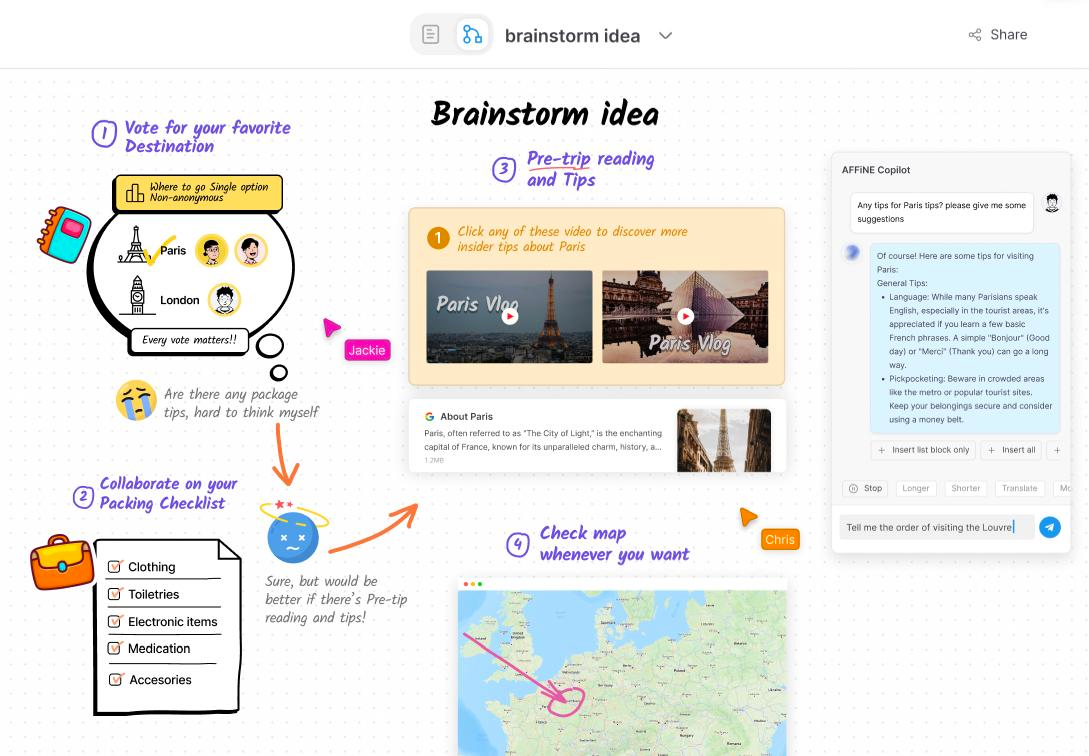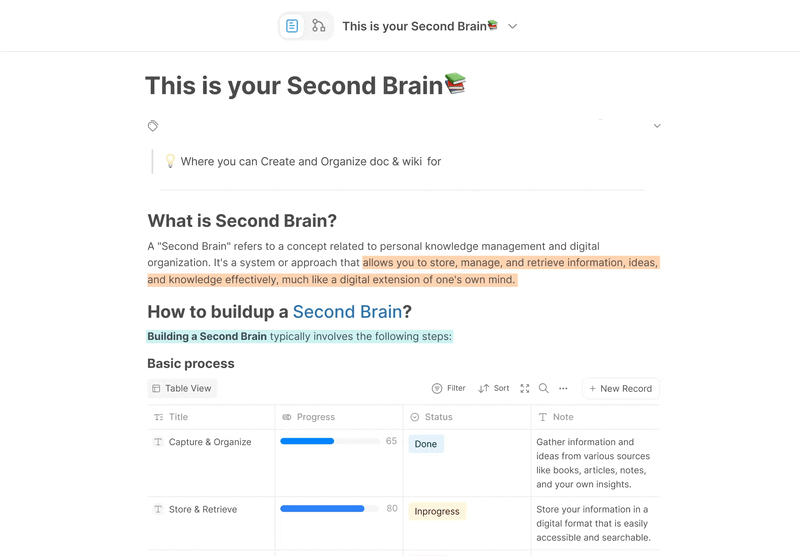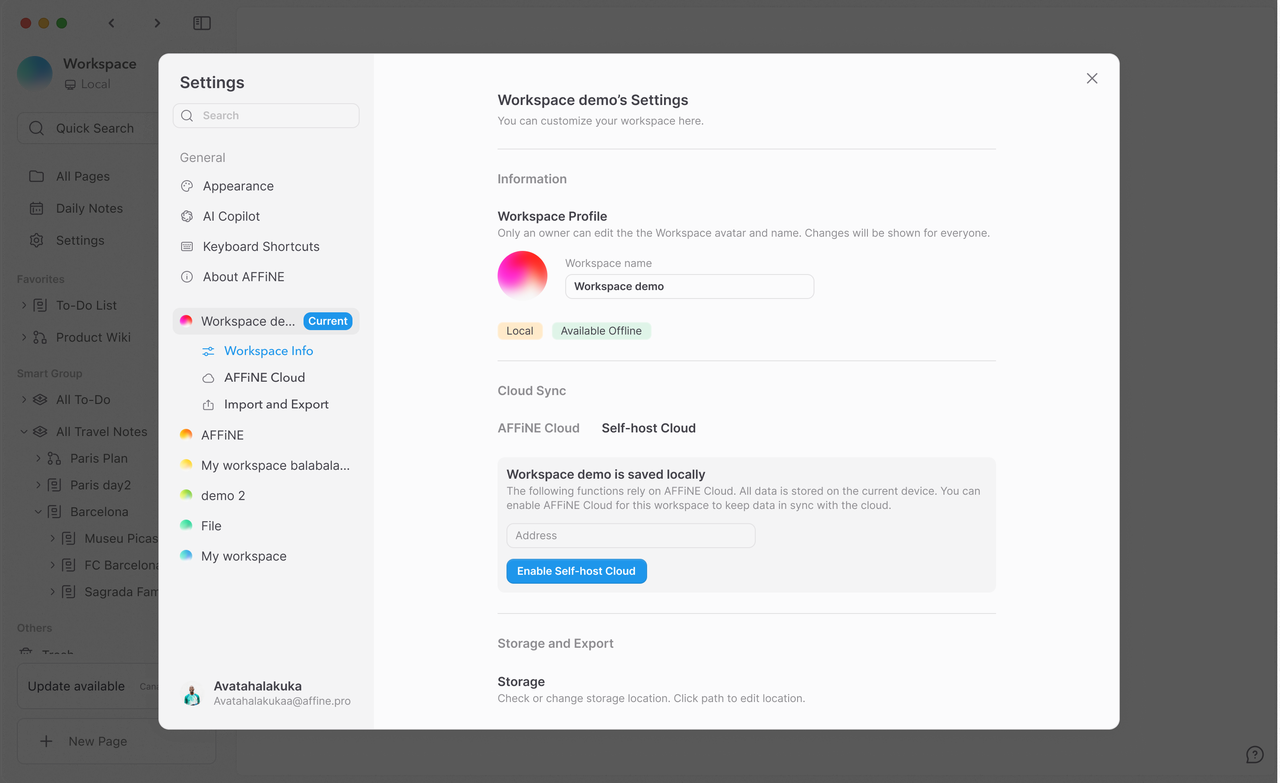What is Marketing Management: A Complete Guide

Overview of this article:
-
What is marketing management?
-
Why does marketing management matter?
-
Key features of marketing management?
-
What are the processes of marketing management?
-
What does a marketing manager do?
-
What is the best marketing management software?
In the fast-paced and dynamic realm of business, effective marketing management stands as the linchpin for achieving sustainable growth and maintaining a competitive edge. As markets evolve, consumer behaviors shift, and technologies advance, businesses must navigate these changes strategically. Marketing management, a multifaceted discipline, serves as the guiding force that not only adapts to these shifts but also shapes them for organizational success.

In this ultimate guide of marketing management, we'll navigate through the intricate landscape of marketing management, unraveling its nuances and providing you with essential insights to empower your understanding.
What is marketing management?

Definition: At its essence, marketing management is the systematic planning, implementation, and control of activities to achieve organizational goals by understanding, anticipating, and satisfying customer needs. It involves creating, communicating, delivering, and exchanging offerings that have value for customers, clients, partners, and society at large.
Key Components:
-
**Market Analysis:**Understanding the market landscape, including competitors, trends, and opportunities.
-
Segmentation and Targeting: Dividing the market into segments and identifying target audiences for tailored marketing efforts.
-
The Marketing Mix (4Ps):
-
Product: Developing products that meet customer needs.
-
Price: Setting competitive and profitable pricing strategies.
-
Place: Choosing effective distribution channels.
-
Promotion: Creating compelling messages and promotional activities.
-
Adopting a Customer-Centric Approach: Central to marketing management is a customer-centric approach. It involves building and maintaining relationships with customers, anticipating their needs, and delivering superior value. This customer-focused strategy not only drives sales but also fosters brand loyalty and positive brand perception.
As we delve deeper into the facets of marketing management, we'll unravel its significance, explore key features, and provide insights into the processes that make it a cornerstone of organizational success. Let's journey into the heart of marketing management. 🚀📈
Why does marketing management matter?

Unveiling the Strategic Significance: Beyond being a set of tactics, marketing management emerges as the linchpin for organizational success, which allows us to delve into why marketing management matters in the intricate tapestry of business dynamics.
Driving Sustainable Growth: At its core, marketing management is the catalyst for sustainable growth. It goes beyond short-term gains and focuses on cultivating strategies that propel organizations toward long-term success. By understanding market dynamics and consumer needs, marketing management lays the groundwork for businesses to thrive amid ever-changing landscapes.
Shaping Brand Identity and Reputation: The impact of marketing management extends to shaping how a brand is perceived. Through strategic messaging, effective branding, and compelling storytelling, marketing management builds a brand identity that resonates with target audiences. A well-crafted brand identity not only attracts customers but also fosters trust and loyalty.
Fostering Customer Loyalty: Marketing management is the architect of customer relationships. By delivering value, addressing customer needs, and maintaining consistent communication, it cultivates loyalty. Repeat business and positive word-of-mouth referrals, the fruits of effective marketing management, become powerful drivers of sustained success.
Key features of marketing management
Within the expansive landscape of marketing management, four pivotal features stand out, forming the backbone of successful strategies.

-
Market Analysis:
-
Strategic Insight: Marketing management delves into the market's intricacies, identifying opportunities and threats to inform strategic decisions.
-
Competitor Assessment: A thorough understanding of competitors' strengths and weaknesses guides the formulation of effective strategies.
-
Segmentation and Targeting:
-
Tailored Approach: Marketing management focuses on dividing the market into segments, enabling personalized marketing efforts for heightened engagement.
-
Precision Marketing: Targeting specific segments allows for the customization of strategies, resonating with the unique needs of each audience.
-
The Marketing Mix (4Ps):
-
Holistic Strategy: Covering product development, pricing, distribution, and promotion, the marketing mix ensures a comprehensive approach to achieving business objectives.
-
Strategic Positioning: Crafting a compelling product, setting competitive prices, choosing effective distribution channels, and deploying impactful promotional activities are integral components.
-
Digital Marketing Integration:
-
Online Presence: Marketing management seamlessly integrates digital channels for enhanced brand visibility and engagement.
-
Data-Driven Decisions: Leveraging analytics, marketing management employs data-driven strategies to optimize digital efforts and maximize impact.
-
Social Media Mastery: Harnessing the potential of social platforms forms a core element, fostering direct communication and community building.
What are the processes of marketing management?

- Strategic Planning:
At the heart of effective marketing management lies strategic planning. This process involves aligning marketing objectives with overall organizational goals. By conducting in-depth market analysis, identifying opportunities, and assessing resources, strategic planning lays the foundation for well-informed decision-making. It encompasses goal setting, competitor analysis, and resource allocation, ensuring a cohesive and purposeful approach.
- Product Development and Positioning:
The process of product development and positioning is integral to marketing success. It revolves around innovation, ensuring products align with evolving consumer needs. Simultaneously, it involves strategically positioning products to create a distinct identity in the market. Lifecycle management becomes a crucial aspect, guiding products from introduction to maturity and potential decline.
- Implementation and Execution:
Once strategic plans are in place, the focus shifts to implementation and execution. This process translates strategic goals into actionable steps. Operational planning, encompassing task definition, timeline setting, and responsibility assignment, ensures the effective execution of marketing campaigns. Monitoring and adjustment play a key role, allowing for real-time adaptations based on campaign performance.
- Performance Measurement and Analysis:
The final but equally critical process involves performance measurement and analysis. Establishing key performance indicators (KPIs) provides a framework for evaluating the success of marketing efforts. Leveraging data analytics tools, organizations gain insights into consumer behavior, campaign effectiveness, and broader market trends. Continuous improvement is driven by analyzing performance data to refine strategies for future campaigns.
What does a marketing manager do?
A marketing manager, steering the course of organizational success, engages in three pivotal roles that define their dynamic and strategic contributions.

-
Strategic Visionary:
-
Goal Setting: Setting clear and achievable marketing objectives aligned with overall business goals.
-
Market Analysis: Conducting comprehensive market research to identify opportunities, threats, and emerging trends.
-
Strategic Planning: Crafting and overseeing the implementation of strategic marketing plans to achieve long-term success.
-
Team Leader and Collaborator:
-
Team Management: Leading and motivating cross-functional marketing teams to execute campaigns effectively.
-
Collaboration: Collaborating with product development, sales, and other departments to ensure alignment in messaging and goals.
-
Inspiration: Inspiring creativity and innovation within the team to stay ahead in a competitive market.
-
Performance Analyst and Adaptor:
-
Data-Driven Decision-Making: Utilizing data analytics to assess the performance of marketing campaigns and derive actionable insights.
-
Adaptability: Adapting strategies in response to changing market dynamics, consumer behaviors, and competitive landscapes.
-
Continuous Improvement: Implementing continuous improvement strategies based on performance analysis to enhance future campaigns.
What is the best marketing management software?
AFFiNE
AFFiNE stands out as a state-of-the-art marketing management app, meticulously crafted to streamline the organization, management, and collaboration on tasks, projects, and real-time information. What distinguishes AFFiNE is its unique offering as a free and open-source program, leveraging offline technology to ensure accessibility for all users.
In essence, AFFiNE revolutionizes change management by providing advanced functionalities while breaking barriers with its open-source nature, making it a versatile and inclusive tool for businesses and individuals alike. 💡🔄
Key features:
- Diversified templates: At AFFiNE, we provide a variety of markting management templates, including calendar and SMART, to enhance the agility and efficiency of your marketing management. Utilize our range of templates to streamline processes, improve collaboration, and achieve optimal results in your projects.

-
Collaborative Capabilities: For marketing management, the app should have collaborative features, making it easy to share and coordinate work with others in your group work. For more details, please go to latest launch week blog: Introduction to AFFiNE's Cloud.

- **Write, Draw, and Plan All-in-One:**Enjoy your all-in-one KnowledgeOS solution for effortlessly writing, drawing, and planning on a hyper-fused platform. It supports kanban, table, rich-text paragraphs as building blocks to form pages or whiteboards. It carries out integrated processing here in document editing, data processing, or brainstorming.

- Offline Accessibility: The best marketing management app should allow users to access their essential details offline. This feature is particularly valuable when going outside with limited internet connectivity.

Currently, AFFiNE has released its stable version, but we are continuing to build to a more feature-rich and stable build. Come and join us on our journey over on our media platforms. 🚀🔧
-
Official Website:https://affine.pro/
-
Community:https://community.affine.pro/home
-
Discord:https://discord.gg/Arn7TqJBvG
-
Telegram:https://t.me/affineworkos